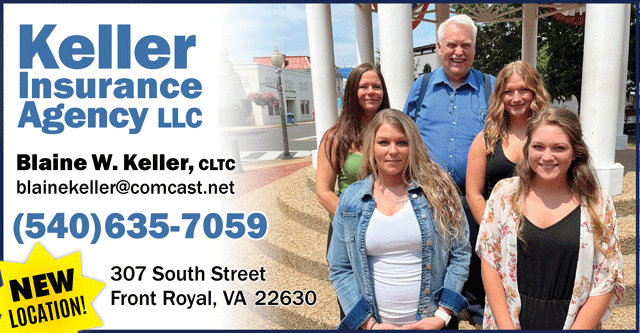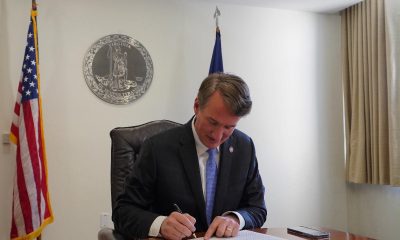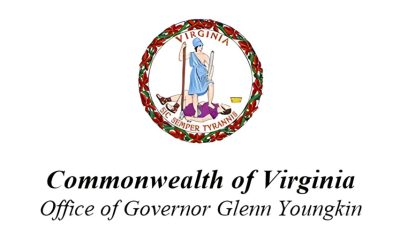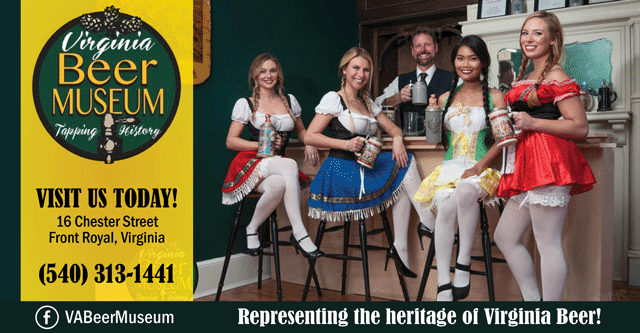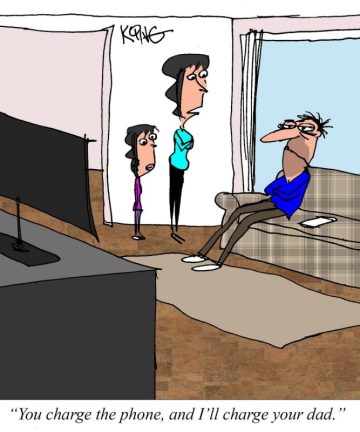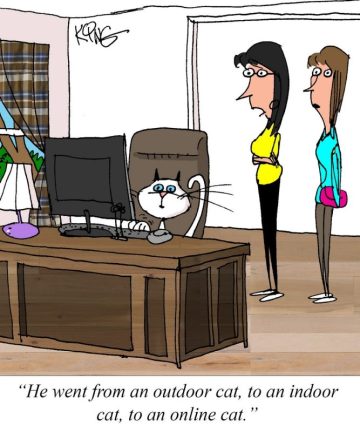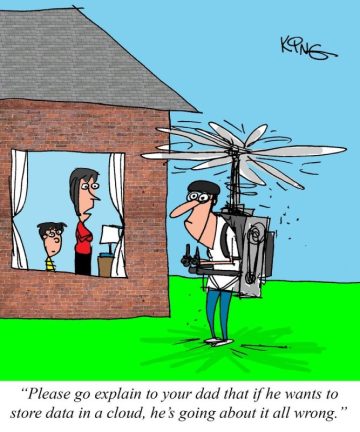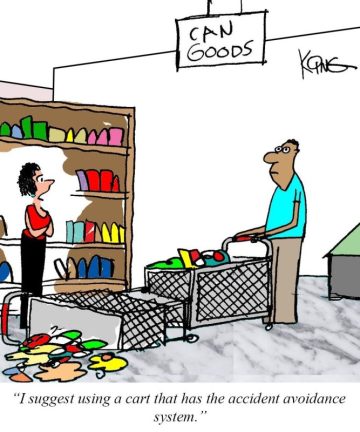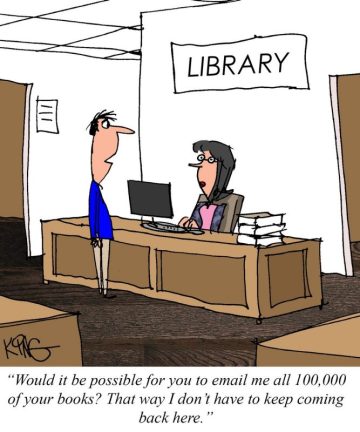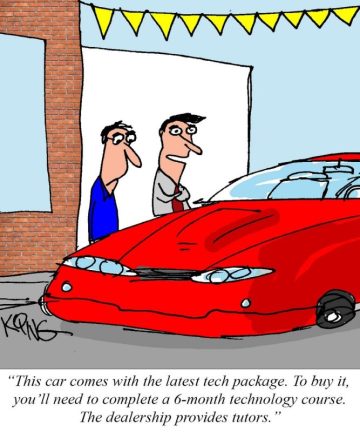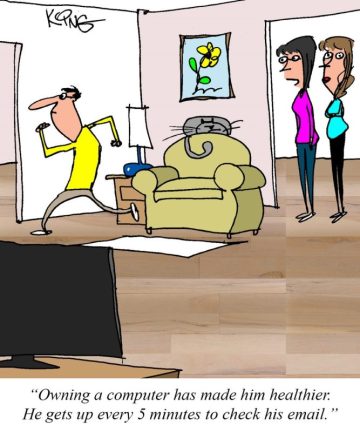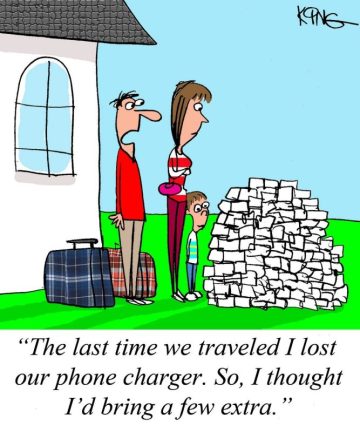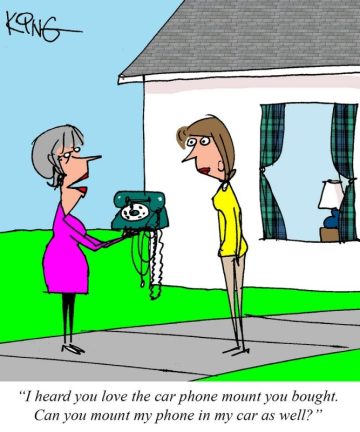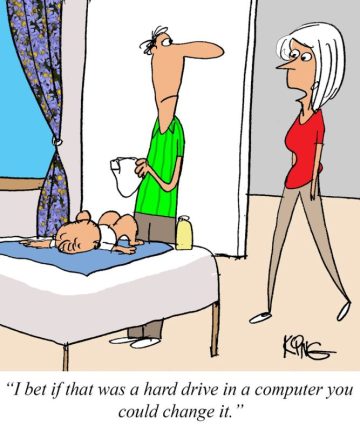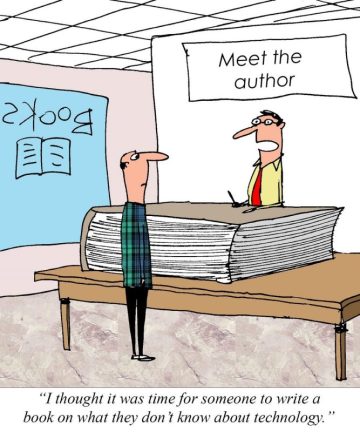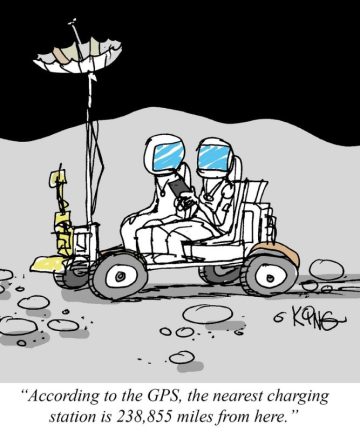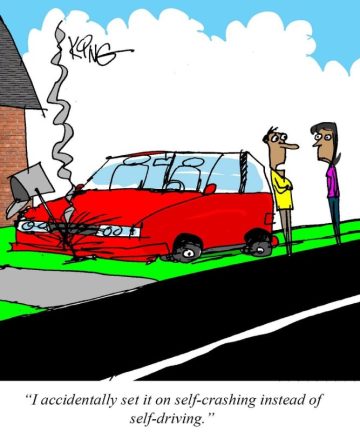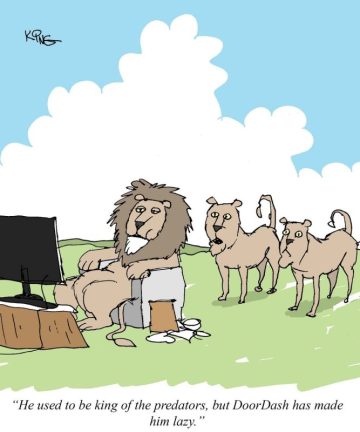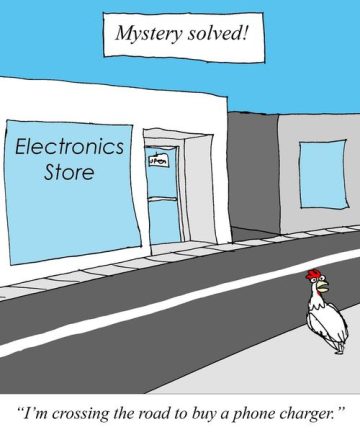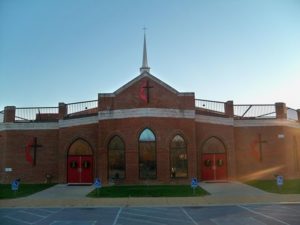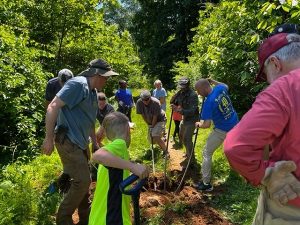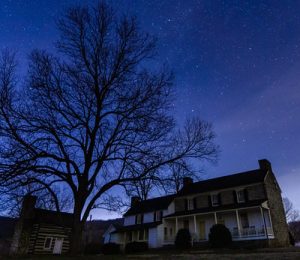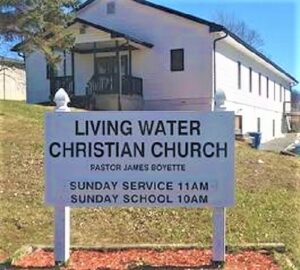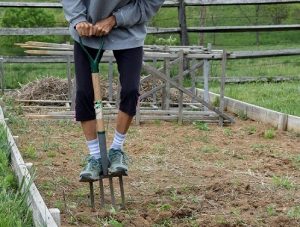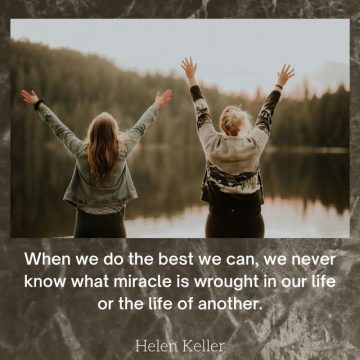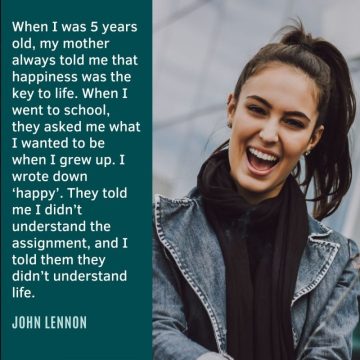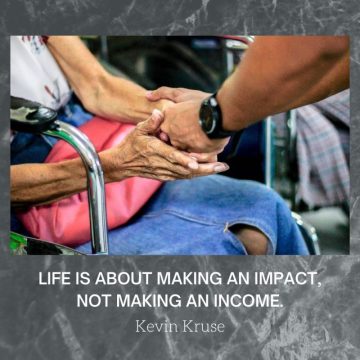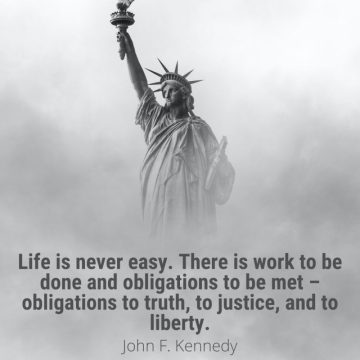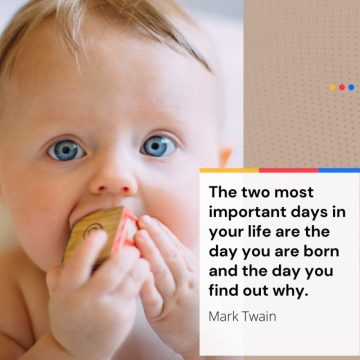State News
Governor Glenn Youngkin delivers the State of the Commonwealth Address
On January 11, 2023, Governor Youngkin delivered the State of the Commonwealth address, where he shared his vision for a Virginia where the next generation can live out their dreams and live up to the Spirit of Virginia. Governor Youngkin also outlined his Day Two agenda to lower the cost of living with tax relief for small local businesses and families, empower parents, build on last session’s record education investment, accelerate the economy, make communities safer, and make Government work for all Virginians.
The State of the Commonwealth
As Prepared For Delivery
Good afternoon. Thank you.
Mr. Speaker, Lt. Governor Earle-Sears, Attorney General Miyares, Chief Justice Goodwyn, President Lucas, members of the General Assembly, members of the Cabinet and my fellow Virginians, I’m honored to be with you again in the storied halls of Mr. Jefferson’s Capitol.
The first version of Virginia’s constitution was written in 1776, in the first Spring of the American Revolution. The second version of our state’s chartering document, and every one since, requires – with great wisdom, I believe – the Governor to communicate to the General Assembly the condition of the Commonwealth.
Now the challenges we face today are different from those our founders faced in 1776, but Virginia’s spirit of grit, determination, innovation, faith, and hope remain the same. Today it is my honor to be with all of you, to laud the progress we’ve made, but also to call upon us all to focus on the work to be done.
Fortunately, I’m not alone in this task or on this journey. I’m joined this afternoon by two of my sons, Grant and John, and every day by the love of my life, who stands by me as a devoted partner in marriage, in parenting, and in service to this great Commonwealth; our First Lady, Suzanne Youngkin.
Suzanne, – I love you and thank you.
I know that many in this room understand what the love and devotion of a spouse means during a season of service.
That is especially true for one of our body’s newest members, Delegate Ellen Campbell, who carries the torch of service for her late husband, our friend Ronnie Campbell. Ellen, please know we’re praying for you and we welcome you in your service to the Commonwealth.
We also have other new members of this esteemed body here this afternoon. We welcome Delegate Holly Seibold and Senator Aaron Rouse.
Thank you both for your willingness to serve the Commonwealth.
Now, consistent with my constitutional responsibilities and my great honor and privilege of serving all Virginians.
I’m here this afternoon to communicate that the State of our Commonwealth is substantially better than it was a year ago and yet we are still a great distance from our destination, a destination where Virginia truly is the best place to live, work and raise a family.
I’m here this afternoon to urge us to accelerate our efforts – to get more done and get it done faster – and make Virginia even stronger. So we can compete to win economically, attract the best jobs, and unlock the dreams and rich talents of all our people.
I’m here today to remind us all that the people sent me here, and you here too, to deliver on a vision to lower costs, empower parents and restore excellence in schools, jumpstart the economy, make our communities safe again, make government work for the people, and to clear a path to opportunity and prosperity.
I’m here this afternoon to celebrate the unbreakable foundation of the Spirit of Virginia. A spirit that is alive and well, a fire burning deep inside the resourceful and kind-hearted Virginians who make our Commonwealth a better place.
And I’m here this afternoon to challenge us to build the people’s confidence in their leaders, to demonstrate to our children the best of representative government, not just by what we accomplish, but even more so by how we conduct ourselves, and to bring us closer together as brothers, sisters, friends, and neighbors.
A year ago, I stood here as a newcomer, energized by the perspective of having spent a year listening every day to Virginians and then able to echo their clarion call for change.
Virginians spoke loudly that they were ready for a new day – a new path forward.
Virginians were tired of the cold halls of government being disconnected from the cold realities that they were facing every day.
They were tired of rising prices at the grocery store and the gas pump.
They were tired of politics as usual.
They wanted their elected leaders to deliver results, not a divided impasse.
They wanted Virginia to soar, not stall.
Today, I still carry with me the stories, concerns and ideas from the millions of Virginians that we all serve – and once again, I’m here to carry not my message, but theirs.
In the year we’ve worked together, we have made substantial progress. We’re on the right path. And Virginians know it; they see the transformation underway, and they want more progress, faster.
We provided historic tax relief on a bipartisan basis, including eliminating the state’s grocery tax.
I was so pleased to see my democratic friends join us recently in celebrating the end of this regressive tax, something Virginians came together around during our election.
That’s definitely a clear sign that there is bipartisan momentum for more tax relief this session.
I look forward to giving those on both sides of the aisle more opportunities to celebrate tax breaks in the coming weeks.
We raised teacher pay and made record investments in K-12 education. We empowered parents, because they matter, giving them the choice on whether their child wears a mask to school again, on a bipartisan basis.
We finally started being honest about the state of education in the Commonwealth, that Virginia’s children were falling further and further behind, and we took necessary steps to get our children back on track.
We embraced through the Virginia Literacy Act – again on a bipartisan basis – the science of reading.
We are launching lab schools and re-establishing Virginia’s standards from last to first.
We froze tuition at every public college and university.
We backed the blue with historic investments in salaries, training and equipment.
We reopened the Commonwealth for business recruiting iconic companies like Boeing and Raytheon Technologies, welcoming Lego’s first ever American manufacturing facility and we watched companies like Plenty, RocketLabs, and DroneUp launch nextgen ag tech, rockets, and drones right here in Virginia.
We changed the way our government works the Virginia Employment Commission worked through 900,000 backlogged claims, and the DMV made life simpler, not harder and we saved OVER $1.2 billion dollars in taxpayer money.
Through sheer force of will, we gave the children of our foster care system warm beds to sleep in, instead of cold office floors.
We started the work of modernizing our outdated regulatory process.
Most importantly – we stood together in times of trial and tribulation – devastating floods in Southwest Virginia and terrible acts of violence in Bridgewater, Charlottesville, Chesapeake and most recently in Newport News.
In each case, we’ve seen the love, the compassion, the fortitude, and the courage of our fellow Virginians on display.
And we began working with cities that were falling further and further behind.
We launched a comprehensive Partnership for Petersburg with state and local government, businesses, non-profit organizations, and faith leaders bringing more than 75 stakeholders together, and we are implementing over 40 initiatives to address – head-on – the challenges in this community by keeping our neighborhoods safe, fostering business and economic growth, improving access to healthcare, preparing Petersburg Students for Life, keeping People Moving with enhanced transportation and bringing together Community and Faith Leaders
Our “Partnership for Petersburg” is demonstrating what we can accomplish with comprehensive commitment and cooperation.
The goal is to transform Petersburg’s future because Petersburg Matters.
This partnership is the catalyst for this city’s renewal, and a template for other struggling cities.
Two of the central partners in that effort have been Mayor Sam Parham and Police Chief Travis Christian, who are here today as not only my guests, but also as a guest of Delegate Kim Taylor and Senator Joe Morrissey.
The Mayor and the Chief embody the Spirit of Virginia. They represent the millions of Virginians who desperately want their leaders to set aside politics and focus on delivering results.
Mayor Parham and Chief Christian – please stand and let us recognize you for your commitment and leadership.
Yes, Virginia, we are on the right path. But, this is no time to set the cruise control, because we have a long way to go and a short time to get there. It’s time to press the accelerator.
For the Commonwealth, accelerating means getting more done and doing it faster, and Virginians don’t have time for political posturing or foot dragging.
They want results now. Not next year, but now.
Throughout my career in business and now as your governor, I’ve maintained a simple rule that I will apply here, today. Don’t sidestep problems, clearly understand them and identify solutions.
As I’ve traveled the commonwealth and listened closely to the stories of Virginians, we truly are on a path to a better future – but we’re nowhere near done.
Virginia’s strengths are clear, an unrivaled location, extraordinary workforce, top ranked higher education, a leading port, and our right to work status…to name a few but there are some concerning signs.
Today, we need to be clear about the challenges we face.
At the heart of our economic challenge is growth.
A growing economy, growing jobs, growing population and a growing workforce drive revenue, drive opportunity and drive our quality of life.
And with the silent thief of inflation – let loose by President Biden – inflation that’s stealing Virginian’s hard earned money growth is more important than ever.
This endeavor is different because our success is not gained in isolation – we face relentless competition from surrounding states.
We have to compete to win.
Despite the progress we have made over the past year, our path forward is directed by an undeniable set of disturbing facts.
Since the start of the pandemic, Virginia has been in the bottom ten for net OUT migration in the country.
The states we compete against for jobs and investment are on the opposite end of that spectrum. North Carolina, South Carolina, Tennessee, Georgia, Florida and Texas are all in the top ten for net IN migration.
These states have grown by more than 1.7 million people while Virginia has lost over 32,000.
Make no mistake, this trend started before the pandemic. Virginia has seen out migration for nine straight years.
2013 was when the states we compete with for people, talent, and jobs started lowering tax rates for businesses or for families, or both and started moving aggressively to make their business climates more competitive.
Virginia fell behind.
When I took office, Virginia was 47th in the nation for job recovery from the pandemic. Since then, more than 85,000 more Virginians are working – placing Virginia now in the top 20 of states for job growth since the turn of the year.
But we still have 125,000 fewer Virginians working than before the pandemic.
And those states that we compete with most directly — North Carolina, South Carolina, Tennessee, Georgia, Florida and Texas — have not only recovered all of the jobs lost during the pandemic, but they’ve actually added a collective 1.3 million jobs.
That data tells an undeniable story.
Virginians are moving to states with lower taxes and lower cost of living and as those Virginians pack up and move away so go the jobs, investments, and tax revenue they drive.
Across the United States in the last fiscal year alone, economic development projects were announced representing over 600,000 jobs and nearly $400 billion in capital investment.
What was Virginia’s share of those projects? Just 3.4%
All of our competitor states did better than Virginia, some more than double.
As I said in December, our competitor states won those projects because we weren’t cultivating our talent fast enough, because we weren’t building the business-ready sites, and because our tax burden was increasingly uncompetitive.
We were not competing to win. If we are honest, we were not even in the ballgame.
But that can – and must – change.
I know there is bipartisan support in this chamber when it comes to harnessing our talent, and I know there is bipartisan support in this chamber to build shovel-ready sites but for the Commonwealth to become truly competitive with our neighboring states – we are going to have to systematically move to lower taxes to make Virginia more attractive to young people, families, veterans, and retirees, and more competitive for business.
The budget amendments I have put forward calls for immediate tax cuts for businesses and individuals – key, visible commitments and a modern-day shot heard round the world that says Virginia is here to compete and Virginia is here to win.
We want all of our veterans to stay here. They make our communities better, so I’m asking you to eliminate the tax on military retirement income for veterans regardless of their age.
I’m also asking that you finish the work we started last year, increase again the standard deduction by another 20%, a change that helps all Virginians, but especially the lower and middle income tax-payers.
The plan I have laid out utilizes $1 billion of the $3.6 billion projected surplus for tax relief, and is structurally sound.
It is consistent with the Commonwealth’s longstanding commitment to conservative budgeting.
Government’s tax receipts have grown astronomically in recent years, 50 percent in the last four years alone. Even with the impending recession, they will continue to grow. The writing on the wall couldn’t be more simple — the people of Virginia are overtaxed. It’s their money, not the governments, and they are voting with their feet and their wallets.
When combined with last year’s tax relief, our plan would save a typical family more than $1,900. And over 47,000 working Virginians would have their tax liability eliminated entirely.
And before we go too much further, let me say again: cutting taxes doesn’t need to be a choice between Republicans and Democrats.
Democratic-led North Carolina recently planned to lower its individual tax rate to 4 percent by 2027, and its business tax to zero by the end of the decade.
“No action” cannot be an option. Or else, we will be moving from the high speed lane to the breakdown lane — willfully watching our Commonwealth fall behind.
The revenues are there to lower tax rates, we can keep Virginians here, we can attract people and businesses from other states, and we can fuel the economic engine that will drive growth, fund further tax reduction, and keep Virginia in that high speed lane.
One of the most encouraging moments I’ve had as Governor was judging Kempsville High School’s shark tank contest in Virginia Beach, watching those seeds of entrepreneurialism and innovation just beginning to grow.
One of the student entrepreneurs I met that night is Jada Watts. Jada and her team, Beauty Perfection, are developing a line of specialty hair tools and beauty products.
Jada and her team won my confidence that night, and she joins us here this afternoon.
Jada, please stand.
On behalf of the Commonwealth of Virginia, thank you for using your entrepreneurial spirit to enrich your community. We can’t wait to see how your small business flourishes.
Jada, please receive our congratulations.
Jada’s story is an inspiring one.
Our collective goal must be for our schools to equip all Virginia students – every “Jada” in the Commonwealth – with the skills and knowledge to thrive, so they can dream big and then confidently pursue those dreams.
When it comes to what’s truly at the heart of our Commonwealth’s future – our children – we know that we have real work to do.
This year’s NAEP scores painted a clear and unmistakable picture of learning loss across the Commonwealth. Virginia’s children suffered the largest decline of any state in the country for 4th grade literacy and tied for the largest decline in 4th grade math.
Every parent in Virginia is now acutely aware that years ago the educational standards were systematically lowered, and, sadly, those lowered expectations were met.
Virginia’s children bear the brunt of those misguided decisions. It’s absolutely unacceptable by any standard and from any perspective…
We must teach our kids to read. I’m asking you to extend reading specialists under the Virginia Literacy Act to the 5th grade. We must teach our kids to do math, I’m asking you to provide math specialists for those poorest performing schools.
We must teach our children all of our history, the good and the bad.
Parents matter and we must protect their fundamental right to make decisions concerning the upbringing, education and care of their children. We must provide choice within the public school system by accelerating our bipartisan efforts to build lab schools.
And we must accelerate dual-enrollment partnerships between our high schools and our community college system, so we WILL realize a day where every child graduates with an industry recognized credential.
These are critical steps that we must take – because in the words of a famous Virginian, George Washington, “the best means of forming a virtuous and happy people will be found in the right education of our youth.”
And I would add, in the right support of their parents and in the right support of their teachers.
The right education of our youth is impossible without great teachers.
I am constantly reminded of Mrs. Betty Weaver, my 4th grade teacher at Watkins Elementary School. She challenged me, pushed me, and encouraged me.
That’s why I’m asking you to build on the bipartisan 10 percent pay raises, bonuses and record investments in education we made together last year.
Join me in providing an additional retention bonus to our teachers as well as $50 million in performance-based bonuses for the very best teachers.
Our teachers are so important. And the best teachers should be rewarded for their performance.
Along with our teachers, there are other quiet heroes in our communities, our brave men and women in law enforcement who see the effects of our policy decisions on the front lines each day…
Because of soft on crime policies from previous administrations, the record murder rates of 2020 persist across the commonwealth, virtually every law enforcement agency has 20% or greater staffing vacancies, and the heartbreaking news reports continue.
The extensive work of our Violent Crime Task Force, working with city leaders in our toughest cities, heard clearly – we need more police on the street, more prosecutors to put criminals behind bars, tougher penalties for those who commit crimes with guns and more support for witnesses and community prevention.
Operation Bold Blue Line focuses precisely on those areas, especially more police on the street, more of the quiet heroes who put on a bulletproof vest everyday to go to work.
We must recruit 2,000 more badges by focusing on high school programs, college programs, retiring military personnel, and attracting law enforcement officers from out-of-state.
We’ve created and are supporting an expedited Option 5 out-of-state lateral program so great law enforcement officers can bring their skills and love of service to the Commonwealth.
And I’m pleased today to welcome Marine veteran and Officer Juan Hernandez.
Officer Hernandez please stand.
Officer Hernandez recently joined the Winchester Police department from California. He took advantage of the Option 5 training academy, leaving California with his wife Vanessa and two children Joseph and Milena.
Thank you for choosing to make Virginia home, please accept our gratitude for your service.
Thank you to all of the law enforcement heroes – troopers, sheriff’s deputies, police officers – every person behind the badge that keeps our families safe with great skill and courage.
You are also on the front lines of the challenges facing our behavioral health system, and our ongoing fight against fentanyl.
Virginia, like the country, is experiencing a behavioral health crisis. And our behavioral health system is overwhelmed, grappling with a level of mental health and substance use issues never seen before – all too often resulting in violence, suicide and murder.
Last month, I stood at Henrico Doctors Hospital to announce a three-year plan to fundamentally transform our behavioral health system. The “Right Help, Right Now” plan is comprehensive — and I ask this General Assembly to fully fund the $230 million bold first step of this plan.
This funding rapidly accelerates the transformation toward a strong and stable behavioral health safety net. It’s part of a bold approach that will substantially expand system capacity — same day care, relieving the burden on law enforcement, greater pre-crisis service capacity in schools, a focus on substance use disorder, a stronger behavioral health workforce, and service innovations.
The plan includes $20 million to fully fund the necessary number of mobile crisis units across the Commonwealth, so we can ensure that every Virginian can get the right help, when they need it.
We’re also asking for $58 million to increase the number of Crisis Receiving Centers. This includes fully funding the number of necessary centers in Southwest Virginia and Hampton Roads – regions that have been too often left behind. And $20 million to contract with hospitals to increase psychiatric emergency services.
And of course, to support this expanded capacity, we need to make our behavioral health workforce a priority. We are investing in the ways we recruit, train, license and retain behavioral healthcare professionals like psychiatrists, psychiatric nurse practitioners and the valued care and support professionals who work alongside them everyday.
On top of this, a key part of the “Right Help, Right Now” plan is ensuring targeted support for Virginians suffering with a substance use disorder.
The painful truth is each of us in this room has a personal story or a moment in our lives where we are faced with a behavioral health challenge or crisis – with family members, loved ones, friends, or neighbors. That is certainly true for Suzanne and me.
Suzanne and I have been blessed in many ways, and blessed with many friends – two of them are with us today — Tom and Delane Mazich.
The Mazich’s are a beautiful family; three strong and capable young boys raised by loving parents.
In September of 2020, Tom and Delane’s doorbell rang. Three Fairfax County police officers were there to share unthinkable news: their son, Greyson, was dead.
Greyson was in his senior year of college, battling pneumonia from his dorm room. He took a pill to help him go to sleep and never woke up.
The toxicology report was tragic: fentanyl poisoning.
Since Greyson’s death, they have dedicated their life to spreading HOPE, H-O-P-E. An acronym of action to encourage families and communities to Have conversations, Observe their children, Prosecute dealers and End the stigma around opioid abuse.
I pray no one in this room ever feels the pain and grief that I’ve seen the Mazich family endure, but too many experience the same pain everyday.
Tom and Delane represent so many parents who have suffered that powerful grief. To all of my colleagues here, please stand and show your support for Mazichs’ incredible commitment to spread HOPE.
To all the other parents out there, know that you are not alone. And know that we are working together to take action.
Actions like statewide prevention efforts directed and funded by the Opioid Abatement Authority, along with full funding for Narcan supplies and training across the commonwealth – but we must combat the source.
Two years ago, this body passed a bill to make the sale, manufacture, and distribution of drugs killing our children, our friends and our neighbors a felony homicide.
It was vetoed by the last Governor, despite the fact it could have – and would have – saved countless lives. Send me that bill again, and I promise you – I will sign it.
Another group of Virginia’s quiet heroes – our nurses – are well aware of the substance abuse crisis.
And everyone should be well aware of the fact that we have a serious shortage of nurses.
Virginia hospitals have identified a shortage of more than 4,000 nurses at their facilities, and vacancy rates are estimated as high as forty percent across all health care. We must accelerate the education and licensing of thousands of nurses.
The budget amendment I introduced in December includes $35 million for the Earn to Learn Accelerator, a program designed to get more nurses from the classroom to the front line faster.
Kaitlyn Niesente a nurse from Stafford County is with us here in the gallery this afternoon.
Kaitlyn please stand.
Kaitlyn was one of the earliest enrollees in Germana Community College’s Earn to Learn Program. Today, she’s a Registered Nurse at Mary Washington Hospital’s Intensive Care Unit.
Kaitlyn, thank you for being one of Virginia’s quiet heroes.
Now, let’s get Kaitlyn some reinforcements!
As we embark on the next 46 days…when it comes to unborn children, we can come together.
We can choose life, and choose to support mothers, fathers, and families in difficult decisions.
This session, I have asked the General Assembly to come together to protect life at 15 weeks, the point when a baby can feel pain.
It is clear, Virginians want fewer abortions, not more.
As we shift into high gear, we have some commonsense decisions to make and actions to take.
Commonsense is something that’s all too lacking in government and politics these days. Too often, we’re bogged down by the mental gymnastics of partisanship, the heavy weight of hands that do too much finger pointing, and a media culture that stokes controversy instead of collaboration.
But in a Commonwealth that was founded for the people, by the people, we must change course. With courage and conviction, we can — and will — restore commonsense to governing.
In choosing commonsense — we can start with Virginia’s energy policy.
Energy is the vital commodity that we use to keep a newborn baby warm in the NICU, senior citizens cool in hot summers, and the lights on during dinner rush at the family diner down the street. It should not – and will not – be subject to politics as usual.
So, our new path forward will embrace the “and” and reject the “or” of energy politics. With our All-American, All-of-the-above approach, Virginians will get affordable AND reliable AND increasingly clean energy without being tied to unattainable long-term requirements.
That is why I’m committed to working in partnership with each of you on legislation to end the rapidly rising electricity rates that are hurting families and making businesses less competitive.
Let’s fund research to drive innovation in small modular reactors, hydrogen, carbon capture and more effective battery storage.
Let’s set realistic carbon reducation goals every five years, as opposed to etching in stone 30 year plans based more on hope than reality.
Friends, that’s common – sense.
It defies common sense that in 2021, lawmakers decided that instead of writing our own electric vehicle laws, Virginia would simply do whatever California decided to do.
Because lawmakers outsourced their responsibilities and surrendered our values to California — Virginians face a mandate starting in 2024 that limits and eventually bans the buying of gas-powered cars or trucks.
Unless we act, Virginia is hostage to the extreme policies of California.
Commonsense says that the law of Virginia should be written by elected leaders here — not outsourced to radical bureaucrats in California.
It should also be commonsense to set realistic goals when it comes to preserving and cleaning up the Chesapeake Bay.
And I reaffirm our administration’s commitment to working with you to leave the natural wonders of Virginia in a better place than how we found them.
I shared with the money committees in August that we inherited a Virginia woefully behind on its 2025 Chesapeake Bay goals. Now, we’re taking a new direction.
The budget I’ve asked you to adopt includes $200 million for the Resilient Virginia Revolving Loan Fund, $237 million for nutrient removal projects, and another $100 million for Richmond’s failing Combined Sewer Overflow system.
We don’t need a carbon tax to do what’s right for the Chesapeake Bay.
It’s common sense that when the Commonwealth sets goals, we actually take the steps needed to achieve them.
We’ve proven this by making investments in roads, rail and broadband to help Virginians stay connected.
We can also choose commonsense when it comes to social media, and the ever-growing threat that the Chinese Communist Party poses to our national security, our privacy and our way of life in Virginia.
We know that our children use technology at an unthinkable, breakneck pace. But the data of our teenagers should not be used and manipulated by big tech companies.
I’m asking you to pass a bill that prohibits tech companies from selling the data of children under the age of 18.
Last month, I signed an Executive Order banning TikTok and WeChat on state-owned devices.
Everyone knows that TikTok is a tool of the Chinese Communist Party, a dictatorial political party that only has one goal: global dominance at the expense of the United States.
While the national security concerns and personal privacy implications of CCP technology are well-known, I believe Virginians should also be wary of Chinese Communist intrusion into Virginia’s economy.
We welcome and encourage economic cooperation with international companies.
I’ve said before that I want “Made in America” to mean “Made in Virginia.” But let me be clear, “Made in Virginia” cannot be a front for the Chinese Communist Party.
In addition, Virginians – not the CCP – should own the rich and vibrant agricultural lands God has blessed us with.
That is why I am asking the General Assembly to send me a bill to prohibit dangerous foreign entities tied to the CCP from purchasing Virginia farmland.
The stakes are too high and the consequences are too great.
Friends, that is just common sense.
I hope throughout our time here, that as we reach moments of impasse… whether on who should own Virginia farmland, how to protect the privacy of our children online, or whether Virginia law should be written in Virginia or California… we will find the courage and the confidence to choose commonsense.
This afternoon, I’ve been honored to welcome a few of our fellow Virginians to the Capitol.
You met Mayor Parham and Chief Christian. You met Jada Watts. You met Officer Rodriguez. You met Kaitlyn Niesente. And you heard the gut-wrenching story of our friends, Tom and Delane Mazich, and the way they’ve turned their grief into HOPE for others.
I’ve shared these stories with you because they embody the Spirit of Virginia. And there are so many more stories behind them.
Suzanne and I were blessed this year with the opportunity to present six Spirit of Virginia awards to deserving individuals and organizations who are Strengthening the Spirit of Virginia.
This award recognizes the unique qualities and standout achievements of incredible men, women and organizations doing great things across the Commonwealth – like our friends Major General Bob Dees and Brigadier General Jeff Horne at the National Center for Healthy Veterans in Altavista at Valor Farm.
The Valor Farm is a shining example of the embodiment of the Spirit of Virginia, an effort maintained by hundreds of volunteers to lift-up those who have sacrificed in the name of freedom and the defense of liberty.
Thank you.
And to all of Virginia’s veterans and to those currently serving at home and abroad – I want to say thank you for answering the call to serve, sacrifice and protect.
Few embody the Spirit of Virginia more than our servicemen and women. This past year, the Virginia National Guard, led by Major General Timothy Williams and under the direction of the Secretary of Defense and Veterans Affairs, completed a historic mobilization period surpassed only twice in the last century.
We are thrilled to have welcomed back more than 2,000 troops from overseas.
Here at home, these heroes are always ready to assist their fellow Virginians in times of need. Whether responding to a natural or man-made disaster, our citizen soldiers and their families are highly adaptable and critical to the Commonwealth’s security.
We also owe a special debt of gratitude to those families and employers whose support is so critical to the success of the Guard’s mission in Virginia and across the globe.
To shine a light on more incredible Virginians, the First Lady has also had the chance to feature women from across the Commonwealth in her Sisterhood Spotlights.
Whether it’s the amazing women in Virginia’s Cabinet, our Lieutenant Governor Earle-Sears, Carmen Williams and her inspiring work as a Domestic Violence advocate, or Miriam Miyares and her heroic efforts to flee Communist Cuba, each of these women carries the flame that is the Spirit of Virginia.
These individuals give us hope…. and they give us reason to believe that just as it was in 1776, the Spirit of Virginia is alive and well today.
And I hope that Spirit is what motivates us to take on the challenges ahead of us. It’s what Virginians deserve.
There are a few who simply and inexplicably will put more value on political stalemate than unified achievement.
Well, today I stand before you to say that Virginians expect more from us.
Because while the people expect us to debate and argue over what divides us — Virginians demand that we come together on what unites us.
In his letter to the Thesalonians, the Apostle Paul guides us on what exactly that can look like. Paul says we should “admonish the idle, encourage the fainthearted, help the weak, be patient with them all. See that no one repays anyone evil for evil, but always seek to do good to one another and to everyone.”
Now is no time for idleness, no time for faintheartedness. It is a time to seek to do good.
Friends, Virginia is the birthplace of America, the most exceptional nation the world has ever known…and while we have not always lived up to our ideals, through the faith and determination that has been seared in our heart by a loving and almighty Creator, we have always strived to do better.
So, I’m here to ask each of you, as partners with me, to summon the courage and the confidence to set aside acrimony and partisanship to do better.
To press forward always “seeking to do good to one another, and everyone” … to collaborate for a stronger, better Virginia.
A Virginia where children get the world-class education they deserve.
A Virginia where the next generation can live out their dreams… building ships and submarines in Newport News, becoming an engineer at Lego, and launching rockets to space from Wallops Island.
A Virginia where citizens in crisis can get the “right help, right now.”
A Virginia with safe streets and neighborhoods where our law enforcement heroes are lifted up, celebrated and thanked.
A Virginia where energy is reliable, affordable, and increasingly clean, where citizens of the Commonwealth govern and make decisions for themselves.
A Virginia with a vibrant and growing population because our foot is on the economic accelerator, a Virginia where We. Are. Winning.
This is our own moment to eternalize in the books of history how we lived up to the Spirit of Virginia.
How we didn’t shy away from challenges, but rose to meet them.
So let’s find the courage and confidence to lock arms, and do the work together.
Thank you, God bless you. And God bless the great Commonwealth of Virginiantially better than it was a year ago and yet we are still a great distance from our destination, a destination where Virginia truly is the best place to live, work and raise a family.
I’m here this afternoon to urge us to accelerate our efforts – to get more done and get it done faster – and make Virginia even stronger. So we can compete to win economically, attract the best jobs, and unlock the dreams and rich talents of all our people.
I’m here today to remind us all that the people sent me here, and you here too, to deliver on a vision to lower costs, empower parents and restore excellence in schools, jumpstart the economy, make our communities safe again, make government work for the people, and to clear a path to opportunity and prosperity.
I’m here this afternoon to celebrate the unbreakable foundation of the Spirit of Virginia. A spirit that is alive and well, a fire burning deep inside the resourceful and kind-hearted Virginians who make our Commonwealth a better place.
And I’m here this afternoon to challenge us to build the people’s confidence in their leaders, to demonstrate to our children the best of representative government, not just by what we accomplish, but even more so by how we conduct ourselves, and to bring us closer together as brothers, sisters, friends, and neighbors.
A year ago, I stood here as a newcomer, energized by the perspective of having spent a year listening every day to Virginians and then able to echo their clarion call for change.
Virginians spoke loudly that they were ready for a new day – a new path forward.
Virginians were tired of the cold halls of government being disconnected from the cold realities that they were facing every day.
They were tired of rising prices at the grocery store and the gas pump.
They were tired of politics as usual.
They wanted their elected leaders to deliver results, not a divided impasse.
They wanted Virginia to soar, not stall.
Today, I still carry with me the stories, concerns and ideas from the millions of Virginians that we all serve – and once again, I’m here to carry not my message, but theirs.
In the year we’ve worked together, we have made substantial progress. We’re on the right path. And Virginians know it; they see the transformation underway, and they want more progress, faster.
We provided historic tax relief on a bipartisan basis, including eliminating the state’s grocery tax.
I was so pleased to see my democratic friends join us recently in celebrating the end of this regressive tax, something Virginians came together around during our election.
That’s definitely a clear sign that there is bipartisan momentum for more tax relief this session.
I look forward to giving those on both sides of the aisle more opportunities to celebrate tax breaks in the coming weeks.
We raised teacher pay and made record investments in K-12 education. We empowered parents, because they matter, giving them the choice on whether their child wears a mask to school again, on a bipartisan basis.
We finally started being honest about the state of education in the Commonwealth, that Virginia’s children were falling further and further behind, and we took necessary steps to get our children back on track.
We embraced through the Virginia Literacy Act – again on a bipartisan basis – the science of reading.
We are launching lab schools and re-establishing Virginia’s standards from last to first.
We froze tuition at every public college and university.
We backed the blue with historic investments in salaries, training and equipment.
We reopened the Commonwealth for business recruiting iconic companies like Boeing and Raytheon Technologies, welcoming Lego’s first ever American manufacturing facility and we watched companies like Plenty, RocketLabs, and DroneUp launch nextgen ag tech, rockets, and drones right here in Virginia.
We changed the way our government works the Virginia Employment Commission worked through 900,000 backlogged claims, and the DMV made life simpler, not harder and we saved OVER $1.2 billion dollars in taxpayer money.
Through sheer force of will, we gave the children of our foster care system warm beds to sleep in, instead of cold office floors.
We started the work of modernizing our outdated regulatory process.
Most importantly – we stood together in times of trial and tribulation – devastating floods in Southwest Virginia and terrible acts of violence in Bridgewater, Charlottesville, Chesapeake and most recently in Newport News.
In each case, we’ve seen the love, the compassion, the fortitude, and the courage of our fellow Virginians on display.
And we began working with cities that were falling further and further behind.
We launched a comprehensive Partnership for Petersburg with state and local government, businesses, non-profit organizations, and faith leaders bringing more than 75 stakeholders together, and we are implementing over 40 initiatives to address – head-on – the challenges in this community by keeping our neighborhoods safe, fostering business and economic growth, improving access to healthcare, preparing Petersburg Students for Life, keeping People Moving with enhanced transportation and bringing together Community and Faith Leaders
Our “Partnership for Petersburg” is demonstrating what we can accomplish with comprehensive commitment and cooperation.
The goal is to transform Petersburg’s future because Petersburg Matters.
This partnership is the catalyst for this city’s renewal, and a template for other struggling cities.
Two of the central partners in that effort have been Mayor Sam Parham and Police Chief Travis Christian, who are here today as not only my guests, but also as a guest of Delegate Kim Taylor and Senator Joe Morrissey.
The Mayor and the Chief embody the Spirit of Virginia. They represent the millions of Virginians who desperately want their leaders to set aside politics and focus on delivering results.
Mayor Parham and Chief Christian – please stand and let us recognize you for your commitment and leadership.
Yes, Virginia, we are on the right path. But, this is no time to set the cruise control, because we have a long way to go and a short time to get there. It’s time to press the accelerator.
For the Commonwealth, accelerating means getting more done and doing it faster, and Virginians don’t have time for political posturing or foot dragging.
They want results now. Not next year, but now.
Throughout my career in business and now as your governor, I’ve maintained a simple rule that I will apply here, today. Don’t sidestep problems, clearly understand them and identify solutions.
As I’ve traveled the commonwealth and listened closely to the stories of Virginians, we truly are on a path to a better future – but we’re nowhere near done.
Virginia’s strengths are clear, an unrivaled location, extraordinary workforce, top ranked higher education, a leading port, and our right to work status…to name a few but there are some concerning signs.
Today, we need to be clear about the challenges we face.
At the heart of our economic challenge is growth.
A growing economy, growing jobs, growing population and a growing workforce drive revenue, drive opportunity and drive our quality of life.
And with the silent thief of inflation – let loose by President Biden – inflation that’s stealing Virginian’s hard earned money growth is more important than ever.
This endeavor is different because our success is not gained in isolation – we face relentless competition from surrounding states.
We have to compete to win.
Despite the progress we have made over the past year, our path forward is directed by an undeniable set of disturbing facts.
Since the start of the pandemic, Virginia has been in the bottom ten for net OUT migration in the country.
The states we compete against for jobs and investment are on the opposite end of that spectrum. North Carolina, South Carolina, Tennessee, Georgia, Florida and Texas are all in the top ten for net IN migration.
These states have grown by more than 1.7 million people while Virginia has lost over 32,000.
Make no mistake, this trend started before the pandemic. Virginia has seen out migration for nine straight years.
2013 was when the states we compete with for people, talent, and jobs started lowering tax rates for businesses or for families, or both and started moving aggressively to make their business climates more competitive.
Virginia fell behind.
When I took office, Virginia was 47th in the nation for job recovery from the pandemic. Since then, more than 85,000 more Virginians are working – placing Virginia now in the top 20 of states for job growth since the turn of the year.
But we still have 125,000 fewer Virginians working than before the pandemic.
And those states that we compete with most directly — North Carolina, South Carolina, Tennessee, Georgia, Florida and Texas — have not only recovered all of the jobs lost during the pandemic, but they’ve actually added a collective 1.3 million jobs.
That data tells an undeniable story.
Virginians are moving to states with lower taxes and lower cost of living and as those Virginians pack up and move away so go the jobs, investments, and tax revenue they drive.
Across the United States in the last fiscal year alone, economic development projects were announced representing over 600,000 jobs and nearly $400 billion in capital investment.
What was Virginia’s share of those projects? Just 3.4%
All of our competitor states did better than Virginia, some more than double.
As I said in December, our competitor states won those projects because we weren’t cultivating our talent fast enough, because we weren’t building the business-ready sites, and because our tax burden was increasingly uncompetitive.
We were not competing to win. If we are honest, we were not even in the ballgame.
But that can – and must – change.
I know there is bipartisan support in this chamber when it comes to harnessing our talent, and I know there is bipartisan support in this chamber to build shovel-ready sites but for the Commonwealth to become truly competitive with our neighboring states – we are going to have to systematically move to lower taxes to make Virginia more attractive to young people, families, veterans, and retirees, and more competitive for business.
The budget amendments I have put forward calls for immediate tax cuts for businesses and individuals – key, visible commitments and a modern-day shot heard round the world that says Virginia is here to compete and Virginia is here to win.
We want all of our veterans to stay here. They make our communities better, so I’m asking you to eliminate the tax on military retirement income for veterans regardless of their age.
I’m also asking that you finish the work we started last year, increase again the standard deduction by another 20%, a change that helps all Virginians, but especially the lower and middle income tax-payers.
The plan I have laid out utilizes $1 billion of the $3.6 billion projected surplus for tax relief, and is structurally sound.
It is consistent with the Commonwealth’s longstanding commitment to conservative budgeting.
Government’s tax receipts have grown astronomically in recent years, 50 percent in the last four years alone. Even with the impending recession, they will continue to grow. The writing on the wall couldn’t be more simple — the people of Virginia are overtaxed. It’s their money, not the governments, and they are voting with their feet and their wallets.
When combined with last year’s tax relief, our plan would save a typical family more than $1,900. And over 47,000 working Virginians would have their tax liability eliminated entirely.
And before we go too much further, let me say again: cutting taxes doesn’t need to be a choice between Republicans and Democrats.
Democratic-led North Carolina recently planned to lower its individual tax rate to 4 percent by 2027, and its business tax to zero by the end of the decade.
“No action” cannot be an option. Or else, we will be moving from the high speed lane to the breakdown lane — willfully watching our Commonwealth fall behind.
The revenues are there to lower tax rates, we can keep Virginians here, we can attract people and businesses from other states, and we can fuel the economic engine that will drive growth, fund further tax reduction, and keep Virginia in that high speed lane.
One of the most encouraging moments I’ve had as Governor was judging Kempsville High School’s shark tank contest in Virginia Beach, watching those seeds of entrepreneurialism and innovation just beginning to grow.
One of the student entrepreneurs I met that night is Jada Watts. Jada and her team, Beauty Perfection, are developing a line of specialty hair tools and beauty products.
Jada and her team won my confidence that night, and she joins us here this afternoon.
Jada, please stand.
On behalf of the Commonwealth of Virginia, thank you for using your entrepreneurial spirit to enrich your community. We can’t wait to see how your small business flourishes.
Jada, please receive our congratulations.
Jada’s story is an inspiring one.
Our collective goal must be for our schools to equip all Virginia students – every “Jada” in the Commonwealth – with the skills and knowledge to thrive, so they can dream big and then confidently pursue those dreams.
When it comes to what’s truly at the heart of our Commonwealth’s future – our children – we know that we have real work to do.
This year’s NAEP scores painted a clear and unmistakable picture of learning loss across the Commonwealth. Virginia’s children suffered the largest decline of any state in the country for 4th grade literacy and tied for the largest decline in 4th grade math.
Every parent in Virginia is now acutely aware that years ago the educational standards were systematically lowered, and, sadly, those lowered expectations were met.
Virginia’s children bear the brunt of those misguided decisions. It’s absolutely unacceptable by any standard and from any perspective…
We must teach our kids to read. I’m asking you to extend reading specialists under the Virginia Literacy Act to the 5th grade. We must teach our kids to do math, I’m asking you to provide math specialists for those poorest performing schools.
We must teach our children all of our history, the good and the bad.
Parents matter and we must protect their fundamental right to make decisions concerning the upbringing, education and care of their children. We must provide choice within the public school system by accelerating our bipartisan efforts to build lab schools.
And we must accelerate dual-enrollment partnerships between our high schools and our community college system, so we WILL realize a day where every child graduates with an industry recognized credential.
These are critical steps that we must take – because in the words of a famous Virginian, George Washington, “the best means of forming a virtuous and happy people will be found in the right education of our youth.”
And I would add, in the right support of their parents and in the right support of their teachers.
The right education of our youth is impossible without great teachers.
I am constantly reminded of Mrs. Betty Weaver, my 4th grade teacher at Watkins Elementary School. She challenged me, pushed me, and encouraged me.
That’s why I’m asking you to build on the bipartisan 10 percent pay raises, bonuses and record investments in education we made together last year.
Join me in providing an additional retention bonus to our teachers as well as $50 million in performance-based bonuses for the very best teachers.
Our teachers are so important. And the best teachers should be rewarded for their performance.
Along with our teachers, there are other quiet heroes in our communities, our brave men and women in law enforcement who see the effects of our policy decisions on the front lines each day…
Because of soft on crime policies from previous administrations, the record murder rates of 2020 persist across the commonwealth, virtually every law enforcement agency has 20% or greater staffing vacancies, and the heartbreaking news reports continue.
The extensive work of our Violent Crime Task Force, working with city leaders in our toughest cities, heard clearly – we need more police on the street, more prosecutors to put criminals behind bars, tougher penalties for those who commit crimes with guns and more support for witnesses and community prevention.
Operation Bold Blue Line focuses precisely on those areas, especially more police on the street, more of the quiet heroes who put on a bulletproof vest everyday to go to work.
We must recruit 2,000 more badges by focusing on high school programs, college programs, retiring military personnel, and attracting law enforcement officers from out-of-state.
We’ve created and are supporting an expedited Option 5 out-of-state lateral program so great law enforcement officers can bring their skills and love of service to the Commonwealth.
And I’m pleased today to welcome Marine veteran and Officer Juan Hernandez.
Officer Hernandez please stand.
Officer Hernandez recently joined the Winchester Police department from California. He took advantage of the Option 5 training academy, leaving California with his wife Vanessa and two children Joseph and Milena.
Thank you for choosing to make Virginia home, please accept our gratitude for your service.
Thank you to all of the law enforcement heroes – troopers, sheriff’s deputies, police officers – every person behind the badge that keeps our families safe with great skill and courage.
You are also on the front lines of the challenges facing our behavioral health system, and our ongoing fight against fentanyl.
Virginia, like the country, is experiencing a behavioral health crisis. And our behavioral health system is overwhelmed, grappling with a level of mental health and substance use issues never seen before – all too often resulting in violence, suicide and murder.
Last month, I stood at Henrico Doctors Hospital to announce a three-year plan to fundamentally transform our behavioral health system. The “Right Help, Right Now” plan is comprehensive — and I ask this General Assembly to fully fund the $230 million bold first step of this plan.
This funding rapidly accelerates the transformation toward a strong and stable behavioral health safety net. It’s part of a bold approach that will substantially expand system capacity — same day care, relieving the burden on law enforcement, greater pre-crisis service capacity in schools, a focus on substance use disorder, a stronger behavioral health workforce, and service innovations.
The plan includes $20 million to fully fund the necessary number of mobile crisis units across the Commonwealth, so we can ensure that every Virginian can get the right help, when they need it.
We’re also asking for $58 million to increase the number of Crisis Receiving Centers. This includes fully funding the number of necessary centers in Southwest Virginia and Hampton Roads – regions that have been too often left behind. And $20 million to contract with hospitals to increase psychiatric emergency services.
And of course, to support this expanded capacity, we need to make our behavioral health workforce a priority. We are investing in the ways we recruit, train, license and retain behavioral healthcare professionals like psychiatrists, psychiatric nurse practitioners and the valued care and support professionals who work alongside them everyday.
On top of this, a key part of the “Right Help, Right Now” plan is ensuring targeted support for Virginians suffering with a substance use disorder.
The painful truth is each of us in this room has a personal story or a moment in our lives where we are faced with a behavioral health challenge or crisis – with family members, loved ones, friends, or neighbors. That is certainly true for Suzanne and me.
Suzanne and I have been blessed in many ways, and blessed with many friends – two of them are with us today — Tom and Delane Mazich.
The Mazich’s are a beautiful family; three strong and capable young boys raised by loving parents.
In September of 2020, Tom and Delane’s doorbell rang. Three Fairfax County police officers were there to share unthinkable news: their son, Greyson, was dead.
Greyson was in his senior year of college, battling pneumonia from his dorm room. He took a pill to help him go to sleep and never woke up.
The toxicology report was tragic: fentanyl poisoning.
Since Greyson’s death, they have dedicated their life to spreading HOPE, H-O-P-E. An acronym of action to encourage families and communities to Have conversations, Observe their children, Prosecute dealers and End the stigma around opioid abuse.
I pray no one in this room ever feels the pain and grief that I’ve seen the Mazich family endure, but too many experience the same pain everyday.
Tom and Delane represent so many parents who have suffered that powerful grief. To all of my colleagues here, please stand and show your support for Mazichs’ incredible commitment to spread HOPE.
To all the other parents out there, know that you are not alone. And know that we are working together to take action.
Actions like statewide prevention efforts directed and funded by the Opioid Abatement Authority, along with full funding for Narcan supplies and training across the commonwealth – but we must combat the source.
Two years ago, this body passed a bill to make the sale, manufacture, and distribution of drugs killing our children, our friends and our neighbors a felony homicide.
It was vetoed by the last Governor, despite the fact it could have – and would have – saved countless lives. Send me that bill again, and I promise you – I will sign it.
Another group of Virginia’s quiet heroes – our nurses – are well aware of the substance abuse crisis.
And everyone should be well aware of the fact that we have a serious shortage of nurses.
Virginia hospitals have identified a shortage of more than 4,000 nurses at their facilities, and vacancy rates are estimated as high as forty percent across all health care. We must accelerate the education and licensing of thousands of nurses.
The budget amendment I introduced in December includes $35 million for the Earn to Learn Accelerator, a program designed to get more nurses from the classroom to the front line faster.
Kaitlyn Niesente a nurse from Stafford County is with us here in the gallery this afternoon.
Kaitlyn please stand.
Kaitlyn was one of the earliest enrollees in Germana Community College’s Earn to Learn Program. Today, she’s a Registered Nurse at Mary Washington Hospital’s Intensive Care Unit.
Kaitlyn, thank you for being one of Virginia’s quiet heroes.
Now, let’s get Kaitlyn some reinforcements!
As we embark on the next 46 days…when it comes to unborn children, we can come together.
We can choose life, and choose to support mothers, fathers, and families in difficult decisions.
This session, I have asked the General Assembly to come together to protect life at 15 weeks, the point when a baby can feel pain.
It is clear, Virginians want fewer abortions, not more.
As we shift into high gear, we have some commonsense decisions to make and actions to take.
Commonsense is something that’s all too lacking in government and politics these days. Too often, we’re bogged down by the mental gymnastics of partisanship, the heavy weight of hands that do too much finger pointing, and a media culture that stokes controversy instead of collaboration.
But in a Commonwealth that was founded for the people, by the people, we must change course. With courage and conviction, we can — and will — restore commonsense to governing.
In choosing commonsense — we can start with Virginia’s energy policy.
Energy is the vital commodity that we use to keep a newborn baby warm in the NICU, senior citizens cool in hot summers, and the lights on during dinner rush at the family diner down the street. It should not – and will not – be subject to politics as usual.
So, our new path forward will embrace the “and” and reject the “or” of energy politics. With our All-American, All-of-the-above approach, Virginians will get affordable AND reliable AND increasingly clean energy without being tied to unattainable long-term requirements.
That is why I’m committed to working in partnership with each of you on legislation to end the rapidly rising electricity rates that are hurting families and making businesses less competitive.
Let’s fund research to drive innovation in small modular reactors, hydrogen, carbon capture and more effective battery storage.
Let’s set realistic carbon reducation goals every five years, as opposed to etching in stone 30 year plans based more on hope than reality.
Friends, that’s common – sense.
It defies common sense that in 2021, lawmakers decided that instead of writing our own electric vehicle laws, Virginia would simply do whatever California decided to do.
Because lawmakers outsourced their responsibilities and surrendered our values to California — Virginians face a mandate starting in 2024 that limits and eventually bans the buying of gas-powered cars or trucks.
Unless we act, Virginia is hostage to the extreme policies of California.
Commonsense says that the law of Virginia should be written by elected leaders here — not outsourced to radical bureaucrats in California.
It should also be commonsense to set realistic goals when it comes to preserving and cleaning up the Chesapeake Bay.
And I reaffirm our administration’s commitment to working with you to leave the natural wonders of Virginia in a better place than how we found them.
I shared with the money committees in August that we inherited a Virginia woefully behind on its 2025 Chesapeake Bay goals. Now, we’re taking a new direction.
The budget I’ve asked you to adopt includes $200 million for the Resilient Virginia Revolving Loan Fund, $237 million for nutrient removal projects, and another $100 million for Richmond’s failing Combined Sewer Overflow system.
We don’t need a carbon tax to do what’s right for the Chesapeake Bay.
It’s common sense that when the Commonwealth sets goals, we actually take the steps needed to achieve them.
We’ve proven this by making investments in roads, rail and broadband to help Virginians stay connected.
We can also choose commonsense when it comes to social media, and the ever-growing threat that the Chinese Communist Party poses to our national security, our privacy and our way of life in Virginia.
We know that our children use technology at an unthinkable, breakneck pace. But the data of our teenagers should not be used and manipulated by big tech companies.
I’m asking you to pass a bill that prohibits tech companies from selling the data of children under the age of 18.
Last month, I signed an Executive Order banning TikTok and WeChat on state-owned devices.
Everyone knows that TikTok is a tool of the Chinese Communist Party, a dictatorial political party that only has one goal: global dominance at the expense of the United States.
While the national security concerns and personal privacy implications of CCP technology are well-known, I believe Virginians should also be wary of Chinese Communist intrusion into Virginia’s economy.
We welcome and encourage economic cooperation with international companies.
I’ve said before that I want “Made in America” to mean “Made in Virginia.” But let me be clear, “Made in Virginia” cannot be a front for the Chinese Communist Party.
In addition, Virginians – not the CCP – should own the rich and vibrant agricultural lands God has blessed us with.
That is why I am asking the General Assembly to send me a bill to prohibit dangerous foreign entities tied to the CCP from purchasing Virginia farmland.
The stakes are too high and the consequences are too great.
Friends, that is just common sense.
I hope throughout our time here, that as we reach moments of impasse… whether on who should own Virginia farmland, how to protect the privacy of our children online, or whether Virginia law should be written in Virginia or California… we will find the courage and the confidence to choose commonsense.
This afternoon, I’ve been honored to welcome a few of our fellow Virginians to the Capitol.
You met Mayor Parham and Chief Christian. You met Jada Watts. You met Officer Rodriguez. You met Kaitlyn Niesente. And you heard the gut-wrenching story of our friends, Tom and Delane Mazich, and the way they’ve turned their grief into HOPE for others.
I’ve shared these stories with you because they embody the Spirit of Virginia. And there are so many more stories behind them.
Suzanne and I were blessed this year with the opportunity to present six Spirit of Virginia awards to deserving individuals and organizations who are Strengthening the Spirit of Virginia.
This award recognizes the unique qualities and standout achievements of incredible men, women and organizations doing great things across the Commonwealth – like our friends Major General Bob Dees and Brigadier General Jeff Horne at the National Center for Healthy Veterans in Altavista at Valor Farm.
The Valor Farm is a shining example of the embodiment of the Spirit of Virginia, an effort maintained by hundreds of volunteers to lift-up those who have sacrificed in the name of freedom and the defense of liberty.
Thank you.
And to all of Virginia’s veterans and to those currently serving at home and abroad – I want to say thank you for answering the call to serve, sacrifice and protect.
Few embody the Spirit of Virginia more than our servicemen and women. This past year, the Virginia National Guard, led by Major General Timothy Williams and under the direction of the Secretary of Defense and Veterans Affairs, completed a historic mobilization period surpassed only twice in the last century.
We are thrilled to have welcomed back more than 2,000 troops from overseas.
Here at home, these heroes are always ready to assist their fellow Virginians in times of need. Whether responding to a natural or man-made disaster, our citizen soldiers and their families are highly adaptable and critical to the Commonwealth’s security.
We also owe a special debt of gratitude to those families and employers whose support is so critical to the success of the Guard’s mission in Virginia and across the globe.
To shine a light on more incredible Virginians, the First Lady has also had the chance to feature women from across the Commonwealth in her Sisterhood Spotlights.
Whether it’s the amazing women in Virginia’s Cabinet, our Lieutenant Governor Earle-Sears, Carmen Williams and her inspiring work as a Domestic Violence advocate, or Miriam Miyares and her heroic efforts to flee Communist Cuba, each of these women carries the flame that is the Spirit of Virginia.
These individuals give us hope…. and they give us reason to believe that just as it was in 1776, the Spirit of Virginia is alive and well today.
And I hope that Spirit is what motivates us to take on the challenges ahead of us. It’s what Virginians deserve.
There are a few who simply and inexplicably will put more value on political stalemate than unified achievement.
Well, today I stand before you to say that Virginians expect more from us.
Because while the people expect us to debate and argue over what divides us — Virginians demand that we come together on what unites us.
In his letter to the Thesalonians, the Apostle Paul guides us on what exactly that can look like. Paul says we should “admonish the idle, encourage the fainthearted, help the weak, be patient with them all. See that no one repays anyone evil for evil, but always seek to do good to one another and to everyone.”
Now is no time for idleness, no time for faintheartedness. It is a time to seek to do good.
Friends, Virginia is the birthplace of America, the most exceptional nation the world has ever known…and while we have not always lived up to our ideals, through the faith and determination that has been seared in our heart by a loving and almighty Creator, we have always strived to do better.
So, I’m here to ask each of you, as partners with me, to summon the courage and the confidence to set aside acrimony and partisanship to do better.
To press forward always “seeking to do good to one another, and everyone” … to collaborate for a stronger, better Virginia.
A Virginia where children get the world-class education they deserve.
A Virginia where the next generation can live out their dreams… building ships and submarines in Newport News, becoming an engineer at Lego, and launching rockets to space from Wallops Island.
A Virginia where citizens in crisis can get the “right help, right now.”
A Virginia with safe streets and neighborhoods where our law enforcement heroes are lifted up, celebrated and thanked.
A Virginia where energy is reliable, affordable, and increasingly clean, where citizens of the Commonwealth govern and make decisions for themselves.
A Virginia with a vibrant and growing population because our foot is on the economic accelerator, a Virginia where We. Are. Winning.
This is our own moment to eternalize in the books of history how we lived up to the Spirit of Virginia.
How we didn’t shy away from challenges, but rose to meet them.
So let’s find the courage and confidence to lock arms, and do the work together.
Thank you, God bless you. And God bless the great Commonwealth of Virginia
State News
Youth Violence Prevention Program Funding Hangs in the Balance as Legislature Reworks State Budget
Two Virginia school divisions are slated to launch a pilot program intended to help reduce youth involvement in gangs and violent behaviors with guns but it’s unclear if the initiative will be fully funded, as lawmakers go back to the drawing board to work up a new state spending plan.
On April 2, Gov. Glenn Youngkin signed legislation to create the Community Builders Pilot Program that will start with Roanoke and Petersburg City Public Schools students entering the eighth grade. Pupils in both districts face high rates of gun violence and cases of students bringing firearms to school.
Bill carriers Sen. Lashrecse Aird, D-Petersburg, and Sam Rasoul, D-Roanoke, said unlike other community violence intervention efforts centered around getting weapons off the streets, their legislation takes a different approach because it centers students.
“We’re hoping by involving young people that perhaps it helps in other ways,” said Aird, adding that such a program could also have a “residual impact” on children facing disciplinary trouble in school.
“But ultimately, [this legislation] is specifically trying to make sure that when they are no longer in school, they have another outlet that’s pouring into them and they’re not getting involved in things that can be harmful to themselves and others when they are outside of the school walls,” she said.
If the program is successful, Rasoul — who serves as the chair of the House Education Committee — said he hopes it will expand to other schools and grade levels.
“This is a great way to keep students focused, especially through the summer, and to build some healthy habits with a very specific curriculum that then follows them throughout their eighth grade year,” said Rasoul.
According to the pilot program legislation, the initiative will provide community engagement, workforce development, postsecondary education exploration, social-emotional education and development opportunities to students during the academic year after regular school hours and during the summer months.
Schools will collect data and report the program’s progress to the governor’s administration and General Assembly every November for the next two years.
Public interest in youth gun violence prevention has increased, most notably after a then-six-year-old student brought a firearm from home to his Newport News elementary school last year and shot his teacher. The teacher, Abigail Zwerner, was seriously injured but survived.
The Community Builders program might have scored a legislative win, but funding for the program will remain unclear until the governor and leaders from the General Assembly determine the final budget before the June 30 deadline.
Virginia legislature will consider reworked state budget in May 13 special session
The General Assembly backed the pilot program with $800,000 in dedicated funds over the next two years. However, the governor amended the budget, cutting the request to $400,000. It’s an example of the governor’s and the General Assembly’s differing opinions on how the commonwealth should be funded for the next two years.
Del. Mike Cherry, R-Colonial Heights, who supported the Community Builders legislation, said during the Jan. 30 House Education subcommittee hearing that he believes it to be a “great model program” and would work well with Ceasefire Virginia in supporting communities facing high levels of crime.
In 2022, Ceasefire was launched as a multi-jurisdictional approach to address violent criminal activity among serious and repeat offenders in partnership with Virginia’s attorney general’s office, elected officials and law enforcement.
The purpose of the initiative is to reduce violent crime through partnerships and investments into gang prevention and community policing. Ceasefire has been implemented in 13 cities statewide, including Petersburg and Roanoke.
“When you ask high school students ‘When did things start to go wrong?’ many times they will point to the middle school level,” Verletta White, superintendent of Roanoke City Public Schools, said during a Jan. 30 House Education subcommittee hearing.
“We want to target our rising eighth graders and show them not only the detrimental effects of violence on a community, but their responsibility and how they can be community builders instead.”
by Nathaniel Cline, Virginia Mercury
Virginia Mercury is part of States Newsroom, a nonprofit news network supported by grants and a coalition of donors as a 501c(3) public charity. Virginia Mercury maintains editorial independence. Contact Editor Samantha Willis for questions: info@virginiamercury.com. Follow Virginia Mercury on Facebook and Twitter.
State News
Virginia Legislature Will Consider Reworked State Budget in May 13 Special Session
Gov. Glenn Youngkin and lawmakers have agreed to work together on the biennium budget, after clashing for weeks over two distinctly different spending plans.
A special session will be held on May 13, Youngkin and lawmakers in both chambers announced Wednesday, to consider the revamped budget and prevent a shutdown ahead of July 1, when the current budget expires.
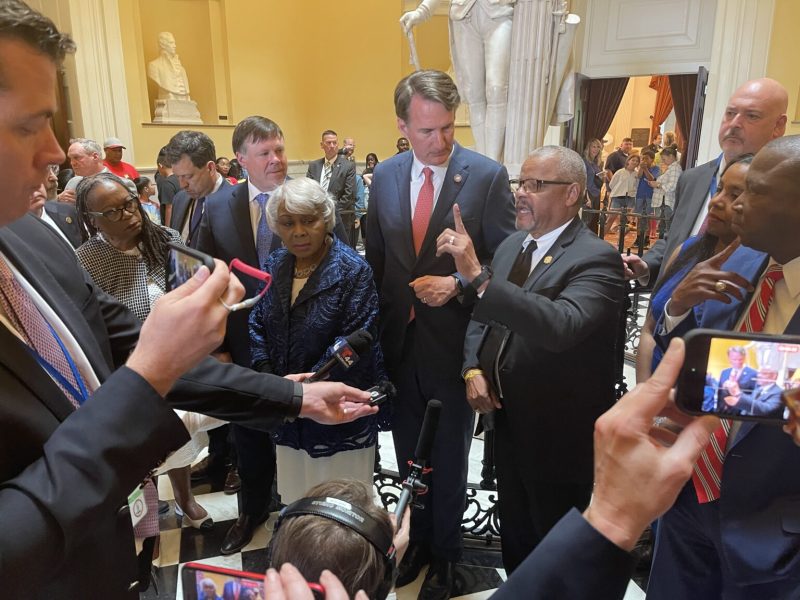
Gov. Glenn Youngkin was joined by Democratic and Republican leaders from both chambers in the Capitol’s rotunda on April 17. (Nathaniel Cline/Virginia Mercury)
On Wednesday, the House of Delegates voted to reject all 233 of the governor’s amendments to the budget, and agreed to seek a new budget to present to the legislature May 13, with voting on it expected May 15. They also took up the governor’s other bill amendments and 153 vetoes.
The House accepted all Youngkin’s vetoes, including bills that would have raised the minimum wage, created a Prescription Drug Affordability Board to cap drug prices, protected people who come to Virginia for reproductive health care from extradition and prohibited assault firearms in public places.
Future of skill games in Virginia still unclear as Senate rejects Youngkin’s proposal
The bill amendments up for debate included: changes to legislation that would legalize skill machines, which was rejected by the Senate; a measure that would lower the amounts Dominion Energy and Appalachian Power Company can recover from customers for their pre-construction costs of a small modular reactor, which was adopted in their respective chambers; and another that would require school boards to notify gun-owning parents annually of their responsibility to safely store firearms to keep them away from their children, which was also rejected by the delegates.
It’s not clear what will happen to the language the legislature included in its budget that would’ve ordered the state to rejoin the carbon market known as the Regional Greenhouse Gas Initiative, or RGGI, that incentivizes electricity producers to emit less carbon by making them purchase allowances to do so.
Youngkin — who passed a regulation that withdrew Virginia from RGGI despite RGGI supporters saying a legislative change was needed — has opposed participation in RGGI, while calling the fee for the allowances that utilities can recover from ratepayers a “hidden tax.” The regulation withdrawal is being challenged in court.
The budget delay also creates uncertainty for local governments trying to estimate how much funding schools will receive and the Washington Metropolitan Area Transit Authority, or Metro, which is seeking additional funding from the state to bridge its $750 million shortfall.
Before Wednesday’s veto session, the governor tried compromising on the budget with lawmakers by removing all tax increases they had approved — including the digital service sales tax he initially proposed — but also dropping the tax cuts he requested in December.
In the Capitol’s rotunda with Democratic and Republican leaders from both chambers Wednesday afternoon, Youngkin said all parties are close to a budget agreement after meeting over the last few days.
“We believe this is a good path forward for the commonwealth,”Youngkin told reporters. “It reflects the work that has been done from the General Assembly and from the governor’s office.”
He added that no decisions have been made yet on the specifics of the budget, including tax increases, but he looks forward to meeting with leaders.
“This was a collective decision, and you will see from the vote this morning that it is unanimous amongst all of us to press forward in this fashion,” Youngkin said.
House Appropriations Committee Chair Luke Torian, D-Prince William, added, “We agreed that there is nothing that’s off the table. Everything will be up for discussion and deliberations. No decisions have been made at this point.”
Senate Finance and Appropriations Committee Chair Louise Lucas, D-Portsmouth, told a reporter that they were “absolutely correct” that envisioning the governor, Democrats and Republicans standing together in the rotunda two months ago was unlikely to happen when there were different budget priorities on both sides, including Youngkin’s arena proposal to bring two professional sports teams to Northern Virginia and the Democratic-controlled legislature’s plan to raise the minimum wage and allow retail cannabis sales in the state.
“But I think what’s changed is that there has been a lot of collaboration,” Lucas said. ”I think nothing helps the process more than everybody getting together, sitting around the table and talking about what we can all do to help Virginia. I think we all had different ways we thought we were going to get there, but I think now we are going to work together towards something that will keep the temperature down a little bit.”
Sen. Ryan McDougle, R-Hanover, who, along with Lucas, met with the governor earlier this week, said he is optimistic about the process moving forward.
“That’s how you come to a resolution,” McDougle said. “Everybody’s got to come to the table and talk and be heard and once you do that you can find solutions.”
by Nathaniel Cline, Virginia Mercury
Virginia Mercury is part of States Newsroom, a nonprofit news network supported by grants and a coalition of donors as a 501c(3) public charity. Virginia Mercury maintains editorial independence. Contact Editor Samantha Willis for questions: info@virginiamercury.com. Follow Virginia Mercury on Facebook and Twitter.
State News
Future of Skill Games in Virginia Still Unclear as Senate Rejects Youngkin’s Proposal
The fate of slots-like skill games in Virginia convenience stores and truck stops remained in limbo Wednesday as the state Senate voted to reject Gov. Glenn Youngkin’s sweeping changes to a proposal to legalize and tax the gambling machines.

Sen. Aaron Rouse, D-Virginia Beach, spoke to reporters at the Capitol while surrounded by skill game supporters who back the legalization bill he’s sponsoring. (Graham Moomaw/Virginia Mercury)
The Senate voted 34-6 to reject the governor’s tougher amendments to the bill, sending the legislation back to Youngkin in its original form.
Virginia lawmakers return to Richmond as budget battle fuels shutdown talk
The bipartisan move raises the risk Youngkin could veto the legislation, an outcome that would leave skill games prohibited throughout Virginia by a ban enacted under former Gov. Ralph Northam. But lawmakers also announced Wednesday that they’re planning a special session later this spring to reach a deal on the state budget, creating an opening to reconsider the skill game issue over the next few weeks.
“I recognize that this bill faces an uncertain future if it goes back to the governor’s desk,” said Sen. Aaron Rouse, D-Virginia Beach, the bill’s lead sponsor in the Senate. “But… I stand with small businesses in every corner of our commonwealth urging the governor to do right by small businesses and sign this bill.”
Virginia’s skill game ban — which was passed in 2020 but didn’t take effect until 2021 after lawmakers gave the industry a one-year grace period due to COVID-19 — was suspended for nearly two years as the skill game industry fought it in court. The Supreme Court of Virginia reinstated it late last year, rendering the machines illegal and prompting the industry to launch a new lobbying push to change the law.
Things appeared to be going well for skill game supporters until the bill got to Youngkin, who had signaled in February that he had “serious concerns” with the proposal. Last week, the governor unveiled amendments that would impose a higher tax rate on the machines, more regulatory safeguards and strict geographic limits that would effectively ban the machines in most of the state’s metro areas.
The governor wanted a 35% tax rate on the machines, while the General Assembly approved a 25% tax rate. Skill game supporters claim Youngkin’s amendments would create a tax rate of up to 45%, but the administration has said that’s a misread of the bill and the suggested rate is indeed 35%.
In a statement Wednesday evening, Youngkin’s office reiterated its qualms about the legislation while indicating the governor is open to revisiting the geographic limits skill game backers took issue with.
“The governor’s concerns with the bill remain and his amendments addressed those concerns,” said Youngkin spokesman Christian Martinez. “He is open to continuing discussion to alleviate issues with both perimeter provisions.”
Proponents of legalizing skill games have portrayed it as a matter of fairness, arguing that since Virginia has legalized numerous other types of gambling there’s no reason the machines that generate revenue for small business owners should be treated more harshly. Opponents of the bill say the state shouldn’t allow a gambling free-for-all or reward businesses that exploited a legal loophole to profit from gambling machines that have been unregulated and untaxed for most of their existence in Virginia.
The Senate appeared to consider a second vote on the skill game bill to preemptively override a potential veto. But the body didn’t follow through on that effort, which would have required two-thirds votes in both legislative chambers. The House of Delegates, which had approved the skill game bill by a narrow 51-45 margin, didn’t take up the skill game bill Wednesday. Because the bill originated in the Senate, the Senate’s decision to reject Youngkin’s amendments sent the bill straight back to the governor.
The policy specifics of what the governor recommended drew little discussion in the Senate, which completed its action on the skill game bill Wednesday in about five minutes.
Rouse, the only senator who spoke on the bill, said the “most egregious” elements in Youngkin’s proposal were the geographic limitations that would outlaw the machines in the state’s most populous regions. Youngkin’s version of the bill would have prohibited skill games within 35 miles of licensed casinos and Rosie’s facilities affiliated with the Colonial Downs horse racing track. The governor also suggested banning skill games within 2,500 feet of schools, day cares and places of worship.
In a seemingly less controversial amendment, Youngkin proposed giving cities and counties the ability to ban skill games locally. The bill sent to him had no provisions for local control, legalizing the machines statewide with no ability for communities to opt out.
The governor had also suggested tougher regulations requiring the industry to verify the identity of players before they put money into the machines, a system that could help prevent minors and people seeking help for gambling addiction from playing skill games. The bill the legislature passed also bars people under 21 from playing and has provisions for gambling addiction, but was less clear on how those rules would be enforced since skill games aren’t as closely supervised as slot machines on a casino floor.
Del. Paul Krizek, D-Fairfax, a skill game critic who has pushed for tougher regulations on the industry, said the legislature could have avoided a veto by rejecting the 35-mile rule while leaving the rest of Youngkin’s suggestions.
“I’m a big believer that half a loaf is better than no loaf,” Krizek said. “I’m sure there’s things that the governor could meet them halfway on.”
A large group of convenience store owners gathered at the Capitol Wednesday morning to applaud lawmakers seen as skill game allies and criticize Youngkin for amendments they felt were overly harsh and not in tune with reality.
Convenience stores shut down Virginia Lottery sales in protest for skill games
Munir Rassiwala, who owns several convenience stores around Virginia, said he voted for Youngkin but was disappointed the governor seemed to think protecting the investments casinos have made is more important than helping smaller entrepreneurs like him.
“There should be a compromise,” he said. “There are lives at stake.”
Sen. Bill Stanley, R-Franklin, a skill game supporter, encouraged the crowd to keep up the fight.
“Hopefully cooler heads prevail both in the governor’s office and here in the legislature,’ said Stanley, a lawyer who has done work for Pace-O-Matic, a major skill game company lobbying for the legalization bill. “I think ultimately a solution for the budget and for skill games is in the works.”
Virginians Against Neighborhood Slot Machines, an anti-skill game advocacy group funded by casinos, urged Youngkin to veto the bill.
“That is the only course of action to ensure public safety, protect vulnerable communities and to prevent every neighborhood in Virginia from becoming a mini-Las Vegas,” the group said in a statement. “It should tell Virginians everything they need to know that ‘skill games’ proponents threw a tantrum at the mere prospect of modest regulatory protections.”
by Graham Moomaw, Virginia Mercury
Virginia Mercury is part of States Newsroom, a nonprofit news network supported by grants and a coalition of donors as a 501c(3) public charity. Virginia Mercury maintains editorial independence. Contact Editor Samantha Willis for questions: info@virginiamercury.com. Follow Virginia Mercury on Facebook and Twitter.
State News
Youngkin Proposes Uing NoVa Investment Fund to Support Metro
In a state budget amendment, Gov. Glenn Youngkin pledged to support Metro with an additional $133.7 million amid a projected shortfall for the transit agency. The pledge came with a caveat: It would strip funding from a transit investment fund used by Northern Virginia jurisdictions.
Leaders from the Northern Virginia Transportation Commission, the regional body of jurisdictions responsible for funding Metro, urged lawmakers to reject the amendment.
“The General Assembly worked hard and came to [a] compromise, and we believe it’s the right thing to do to reject the amendment and then re-engage with the administration to find common ground and this is not something that we believe the governor is ideologically opposed to,” said Matt de Ferranti, commission chair.
Last week, the governor announced his pledge after the Washington Metropolitan Area Transit Authority, which operates Metro, projected a $750 million shortfall next fiscal year, starting during the summer. In Youngkin’s initial budget proposed in December, he did not include any additional funds for the transit agency.
Since then Virginia’s jurisdictional partners Maryland and the District of Columbia have committed millions to Metro. D.C. has committed up to $200 million, and Maryland is pledging $150 million.
In 2018, the three jurisdictions established a dedicated funding source for Metro to help address any maintenance issues. The Virginia General Assembly created the WMATA Capital Fund to uphold its portion of the agreement.
In December, the governor told reporters that Metro must create a plan to address the change in ridership and service demand before any additional funding is appropriated.
The governor’s proposal
Youngkin’s proposal is less than the $149.5 million proposed by lawmakers, who did not intend to use funds from NVTC.
According to the budget amendment, Virginia would provide $35.7 million from the general fund to NVTC in fiscal year 2026 to support operating assistance for Metro, in addition to the $98 million supplemental allocations held by NVTC.
The commission said in an April 12 letter to lawmakers that the $98 million was given under previous Democratic Gov. Ralph Northam’s administration for the localities to use to address the immediate Metro payments as the country emerged from the pandemic.
Under the governor’s amendment, the letter said, the commission would be required to pay its normal Metro operating bill, which is approximately $340 million, and an additional increase of $119 million in fiscal year 2025.
The funds would have helped with matching the General Assembly’s allocation to address the projected two-year, $263 million increase in Virginia’s Metro bill: $119 million in fiscal year 2025 and $144 million in 2026.
The letter states that the governor’s intended action would place an overly “disproportionate burden” on local budgets in the counties of Arlington, Fairfax and Loudoun, and the cities of Alexandria, Fairfax and Falls Church, who would “need to look to taxpayers a second time, beyond the existing local investments already being made in Metro.”
If the NVTC Trust Fund was exhausted, de Ferranti said, it would delay funding road and bike lane projects in the region.
As part of the governor’s plan, additional funds to the transit agency could increase depending on whether Metro meets the administration’s proposed criteria, including hiring a consulting firm to help the transit agency save money and to review how it is managing funds.
The firm would be required to submit its findings to WMATA by Nov. 30, as well as to the governor, and the chairs of the House and Senate Appropriations committees.
Metro will also be required to provide a management plan to the state for approval by Jan. 15, 2025.
The commission wrote it is concerned about the “procedurally complex and overarching reporting and approval conditions” for the agency Metro on top of other regional efforts.
“Adding more steps beyond the oversight requirements contained in [the] existing code would undo efforts to have clear lines of authority and add financial uncertainty to the flow of funding, disproportionately affecting NVTC and its jurisdictions,” the letter reads.
Helping Metro
Last week, Metro joined the Metropolitan Washington Council of Governments in announcing the launch of a new joint initiative to create a “unified vision” for transit service in the region as Virginia lawmakers weigh the governor’s proposal and conditions.
The initiative comes after the jurisdictions learned more about Metro’s financial challenges to maintain services. Council members also expressed interest in identifying funding and accountability solutions, both in the near and long terms.
“Our public transit network is our region’s most significant, shared asset,” said Clark Mercer, executive director for COG, who added he was pleased leaders are “seizing this valuable opportunity to collaborate and ensure the region’s public transit is positioned for long-term success.”
Council suggests Virginia reset subsidy payments to Metro amid budget shortfall
Randy Clarke, Metro’s general manager and chief executive officer, said on Friday’s The Politics Hour radio show that he expects the Board of Directors to vote on its budget next week, which avoids those “draconian” service cuts.
According to Metro, some of the agency’s proposed changes include eliminating bus service on 67 of 135 lines, reducing bus service on 41 of 135 lines, a 20% general increase in fares and parking rates, reducing rail service and closing 10 stations.
Nearly two dozen groups, including the Coalition for Smarter Growth, Virginia Bicycling Federation and the Southern Environmental Law Center, signed a statement urging lawmakers to reject the governor’s amendment and restore the funding approved by the General Assembly.
“Failure to provide additional state funding will have dire consequences for the workforce and economy of Northern Virginia and the D.C. region,” the April 12 statement reads. “It would mean massive service cuts and fare hikes at Metro, higher transportation costs for workers, and more congestion on the roads, and discourage next generation companies and workers from locating in the D.C. region.”
While Clarke shied away from commenting on the governor’s decision to pledge less than what the General Assembly voted on, he did say that the current funding model is “complex” and “non-traditional” in the transit industry, which prevents the agency from being able to fully predict its ongoing service needs in Virginia, Maryland and D.C.
“The fact that we kinda go through this every other year is unhealthy for Metro. [Metro] can’t do good service planning, workforce planning, capital fleet planning,” Clarke said.“It’s also is not good for our jurisdictional partners.”
According to NVTC, Metro has continued to be a “key economic driver” for the commonwealth, generating $1 billion in state tax revenue annually.
by Nathaniel Cline, Virginia Mercury
Virginia Mercury is part of States Newsroom, a nonprofit news network supported by grants and a coalition of donors as a 501c(3) public charity. Virginia Mercury maintains editorial independence. Contact Editor Samantha Willis for questions: info@virginiamercury.com. Follow Virginia Mercury on Facebook and Twitter.
State News
‘Panicked Rush to Gas’ Could Hike Energy Costs, Report Warns Regulators
The nation’s largest public power company, the Tennessee Valley Authority, which serves 10 million people in Tennessee and parts of six neighboring states, has put forward plans for eight new natural gas plants since 2020.
In South Carolina, Dominion Energy and Santee Cooper are pushing the state legislature to pave the way for a 2,000-megawatt natural gas power plant. Farther north, Dominion also plans new gas generation in Virginia. In its most recent plan filed with state regulators, Georgia Power is looking to add new gas turbines. Likewise, Duke Energy in North Carolina is proposing new gas plants and delaying coal power retirements.
The companies point to spiking electric demand, driven by data centers, new manufacturing facilities, increasing transportation electrification and other sources.
Georgia Power’s CEO said new businesses are creating a thirst for new power at “both a record scale and velocity.” Duke and TVA both cited “tremendous” economic and population growth in their service areas.
But a new report by an energy and climate policy think tank warns that some utilities, particularly in the South, are making a “panicked rush to gas” and calls on state officials to explore cheaper options and carefully vet plans that could saddle electric customers with billions in costs.
”What we really want is for policymakers to ask good questions,” said Eric Gimon, a senior fellow at Energy Innovation, and one of the authors of the brief for utility regulators, in an interview with States Newsroom.
‘Less risky alternatives’
After about 15 years of stagnation, U.S. electric demand is growing. A December report by an electric sector consulting firm noted that the utilities and regional transmission organizations that run the North American electric grid had almost doubled growth projections. At the same time, transmission line construction has nearly ground to a halt and there’s limited ability to move power between regions as the generation mix increasingly shifts to renewables and batteries in many parts of the country.
That’s been coupled with a growing dependence on natural gas power plants, which have taken the role coal used to play in the nation’s power mix but which have also failed in large numbers during recent severe weather.
Gimon said gas plants are often treated as a magic bullet solution to resource adequacy — an electric industry term for having enough power to meet peak demand. If the vision of the utilities pushing for lots of new gas power comes to pass, one of two things will happen, Gimon contends.
“Either they don’t get used very much,” he said, and thus become a stranded asset customers are stuck paying for anyway. “Or they get used a lot and they’re busting through their climate goals and EPA regulations.” In a post Thursday, two Natural Resources Defense Council staffers warned that the huge planned Southeastern gas buildout will jeopardize emission reduction targets and hike electric costs, “leaving customers on the hook for potentially expensive, dirty and ultimately stranded assets that may or may not be usable for their typical, carbon-intensive lifespans.”
Gimon and one of his co-authors, Mike O’Boyle, Energy Innovation’s senior director for electricity, also pointed out that gas plants can’t always be counted on when they’re needed most. In the region run by PJM, the nation’s largest grid operator, gas plants accounted for 70% of the power plant outages it suffered during Winter Storm Elliott in December 2022.
“We’re not talking about a capacity resource that is dependable for 100% of its nameplate capacity during a winter peak either,” O’Boyle said. “I think regulators’ jobs are to help ensure that utility investments are prudent and part of that means have they considered more affordable alternatives and less risky alternatives.”
Sarah Durdaller, a spokesperson for the Edison Electric Institute, which represents investor-owned utilities like Dominion Energy, Southern Company and Duke Energy, said its member companies “are committed to delivering reliable, affordable and resilient clean energy to their customers.”
Durdaller said carbon emissions from the power sector are at their lowest point in almost 50 years, despite electricity generation doubling in that time frame. Natural gas power, she said, “is an essential partner for deploying renewables and maintaining grid reliability.”
As far as the thousands of megawatts of gas plants companies are proposing, she said that utility plans “always evolve as new technologies emerge, as costs decline, as demand forecasts change and as new policies are fully implemented.”
‘Better solutions’
One aspect for policymakers to consider is the reliability of the demand projections themselves.
“Utilities consistently over forecast,” said Gudrun Thompson, a senior attorney at the Southern Environmental Law Center, which has been tracking southeastern utilities’ gas plant proposals. “I would not be surprised if that is happening now.”
Transparency is also a concern, she added, noting that a single data center project could be in negotiations with multiple utilities and get counted by all of them in their load projections.
In 2007, the U.S. Energy Information Administration predicted 1.5% annual growth in electric demand, which would have been a 21% increase over 15 years. It never materialized, mostly because of energy efficiency programs, federal and local building codes and appliance standards and voluntary industry efforts, the Energy Innovation report says.
“Efficiency was a primary cause of flat demand after 2008 and could be a major factor in
mitigating the pressure that new demand growth puts on the electrical grid,” the report notes.
Coming electric load increases aren’t illusory but the report’s authors argue that “better near-term and long-term solutions exist and should be deployed first.”
For example, Gimon said, battery storage is growing by leaps and bounds in Texas and California, and it’s already playing a growing role in helping to meet peak demand. However, in their planning some Southeastern utilities are treating battery storage “like it’s some new technology from Mars,” Gimon said.
The Energy Innovation report’s other recommendations include:
Taking advantage of existing locations with power infrastructure onsite to build renewable power and battery storage, skipping the long wait times to connect to the grid plaguing many new power projects across the country. The Rocky Mountain Institute, a green energy nonprofit, calls it “clean repowering” and says there’s 250 gigawatts (the rough equivalent of 250 large power plants) of new renewable potential at former fossil sites scattered across the country that could be harnessed to create billions in savings and cleaner power generation.Look to meet large customer demands with onsite power, such as solar panels, and take better advantage of demand response programs, which enroll large customers who voluntarily agree to reduce power consumption in exchange for savings. Many of those customers include large corporations that have their own carbon reduction targets. Shaving that large customer demand could avoid some or all new peak gas capacity, the report says. “The utilities’ responses to load growth are coming into conflict with the explicit goals of their own customers who are driving that load growth,” O’Boyle said.Improve how the existing electric system is used by implementing grid-enhancing technologies like dynamic line ratings, power flow controllers and other systems. They’re common in other countries but have been slow to take root in many parts of the U.S. where utilities make the most money by building the most expensive solution they can get approved, not necessarily the one that’s most cost-effective for customers. “The fact is any data center is hooking into a system,” Gimon said. “That system is remarkably underutilized.”Improve regional connections, particularly in the Southeast, which is fast becoming one of the few remaining parts of the country without any real regional wholesale electric market. In 2022, Southeastern utilities created the Southeast Energy Exchange Market, but it’s been criticized as a market in name only, since the volume of actual trades has failed to amount to much. “Research from Energy Innovation and Vibrant Clean Energy found that sharing capacity between non-RTO states in the Southeast would yield more than $10 billion in cost savings annually, revealing a region replete with spare capacity if utilities can figure out how to share it,” the report says.
It will fall to state utility regulators and policymakers to gauge how desperately their residents actually need all the new gas power being proposed and whether there are cheaper ways to meet climbing demand.
Adding more rooftop solar, energy efficiency programs and residential batteries, known as distributed resources, which can be aggregated into what’s known as a virtual power plant, might mean lower electric sales, the report noted.
“In some states, the electric utility is also the gas utility and can benefit from rate-basing new gas infrastructure. These circumstances create incentives that can skew utility decisions toward well-worn solutions like gas plants and typically disincentivize regional coordination,” the report says. “Ultimately, policymakers need to demand more from their utilities and be skeptical of the ‘usual suspect’ solutions.”
Thompson, the SELC attorney, called the amount of new gas southern utilities are proposing “staggering.” The organization estimates that if all the new gas plants proposed get built, it will eclipse the amount of coal generation southern utilities plan to retire over the next 15 years by roughly 8 gigawatts. Regulators, she said, need to “look very hard at the load growth projections and take a hard look at choices that the utilities are making,” including pending EPA carbon regulations that could require expensive carbon capture technology or co-firing with hydrogen and whether the plants will require new pipeline infrastructure. “If all of these plants get approved and built we’re just not going to achieve the carbon reductions that we need to be on a path to averting the worst effects of climate change.”
by Robert Zullo, Virginia Mercury
Virginia Mercury is part of States Newsroom, a nonprofit news network supported by grants and a coalition of donors as a 501c(3) public charity. Virginia Mercury maintains editorial independence. Contact Editor Samantha Willis for questions: info@virginiamercury.com. Follow Virginia Mercury on Facebook and Twitter.
State News
Youngkin Proposes a Second Vote to Remove Robert E. Lee License Plate
While Gov. Glenn Youngkin did not veto a measure to repeal two license plates connected to the controversial history of the Confederacy, he is staving off Democrats’ effort to do so by requiring lawmakers to vote again on the measure next year.

A sample image of the Robert E. Lee license plate available on the Virginia Department of Motor Vehicles website.
The governor also amended the bill, which received bipartisan support from the General Assembly last month and would repeal the special Sons of Confederate Veterans and Gen. Robert E. Lee license plates, by directing the Virginia Department of Motor Vehicles to study when special license plates should expire.
This is the second study the governor has called for related to the Confederacy, after lawmakers passed legislation to eliminate tax exemptions for the national and Virginia division of the United Daughters of the Confederacy, the Confederate Memorial Literary Society and the Stonewall Jackson Memorial.
Bill carrier Del. Candi Mundon King, D-Prince William, views the governor’s amendments to her bill as “cowardly” and “a waste of taxpayer dollars.”
She said the governor is “not brave enough” to stand against Confederacy supporters who want to “continue this harmful narrative that General Lee and the Sons of the Confederacy are something to be celebrated.”
Christian Martinez, a spokesman for the governor, said Virginia has 275 specialty plates including several new additional plates for passenger vehicles that lawmakers added this session.
“The governor’s amendment is aimed at understanding the financial impact of removing specialty plates on state revenue,” Martinez wrote. “In addition, he hopes the Department of Motor Vehicles can work towards a consistent policy to present the General Assembly on how to sunset license plates with low circulation and revisit the bill next year in a more holistic way.”
Over the last four years, Virginia leaders and localities have taken steps to address the commonwealth’s history related to white supremacy and institutional racism by implementing policy changes and reviewing how these topics are addressed in the public education system. Several localities have taken action, sometimes controversial, by renaming roads that bore monikers of people connected to slavery and removing signs and symbols such as Confederate statues.
Opponents and some Republicans, including Sen. John McGuire from Goochland and Del. Tim Griffin of Bedford, said during this year’s session that removing the license plates would violate constitutional free speech protections and create further divisiveness.
Virginia General Assembly votes to scrap Robert E. Lee license plate
“If we pass this bill, a citizen will sue Virginia, and they will use this debate to show the intent of this bill is to kill speech because some in this body did not like the message,” McGuire said during a Feb. 27 Senate floor hearing.
This month, the Sons of the Confederate Veterans observe April as Confederate History and Heritage Month, highlighting prominent figures such as Lee, who was known for his military service and as an enslaver.
“It’s time to expand our view of General Lee in Virginia, his native state that he loved and for, which he sacrificed so much,” said Henrico resident Charles Hague during an earlier House Transportation subcommittee hearing.
However, Mundon King said during the same hearing, “When that license plate says ‘the Virginia Gentleman,’ there is nothing gentle about the way he treated the people who were enslaved.”
Groups, including the NAACP and Southern Poverty Law Center, have been critical of the narrative of the Confederacy which they say the special license plates represent.
Rev. Cozy Bailey, president of the State Conference NAACP, spoke in support of the legislation in February, stating the bill is another area where the commonwealth can “atone for its dark past and move all Virginians forward with inclusion and acknowledgment that any reference to the Confederacy in public spaces and on state-issued materials like license plates are inappropriate and harmful to an entire race of people that suffered under slavery in the Confederate states.”
According to the Virginia Public Access Project, the commonwealth was home to over 100 public memorials dedicated to the Confederacy as of 2021.
In 2020, Virginia permitted local governments to remove, relocate or contextualize the monuments in their communities.
As passed, the legislation would prohibit the DMV from issuing personalized license plates referencing the Sons of Confederate Veterans and Gen. Robert E. Lee. Plates already in circulation would remain valid until their expiration but wouldn’t be renewed.
According to the DMV, as of Feb. 27, 1,783 Robert E. Lee plates and 543 Sons of Confederate Veterans plates are currently in circulation.
The study that Youngkin called for in his amendment would direct the DMV to analyze the effects on state revenue should the plates be discontinued.
The amendment also directs the agency to develop recommendations for when special license plates should expire if few people use them or if they are outlawed, and suggests that any new special license plates also have an expiration date.
The DMV would submit its study to the chairs of the House and Senate Transportation Committees no later than Nov. 1, under Youngkin’s amendment.
by Nathaniel Cline, Virginia Mercury
Virginia Mercury is part of States Newsroom, a nonprofit news network supported by grants and a coalition of donors as a 501c(3) public charity. Virginia Mercury maintains editorial independence. Contact Editor Samantha Willis for questions: info@virginiamercury.com. Follow Virginia Mercury on Facebook and Twitter.

